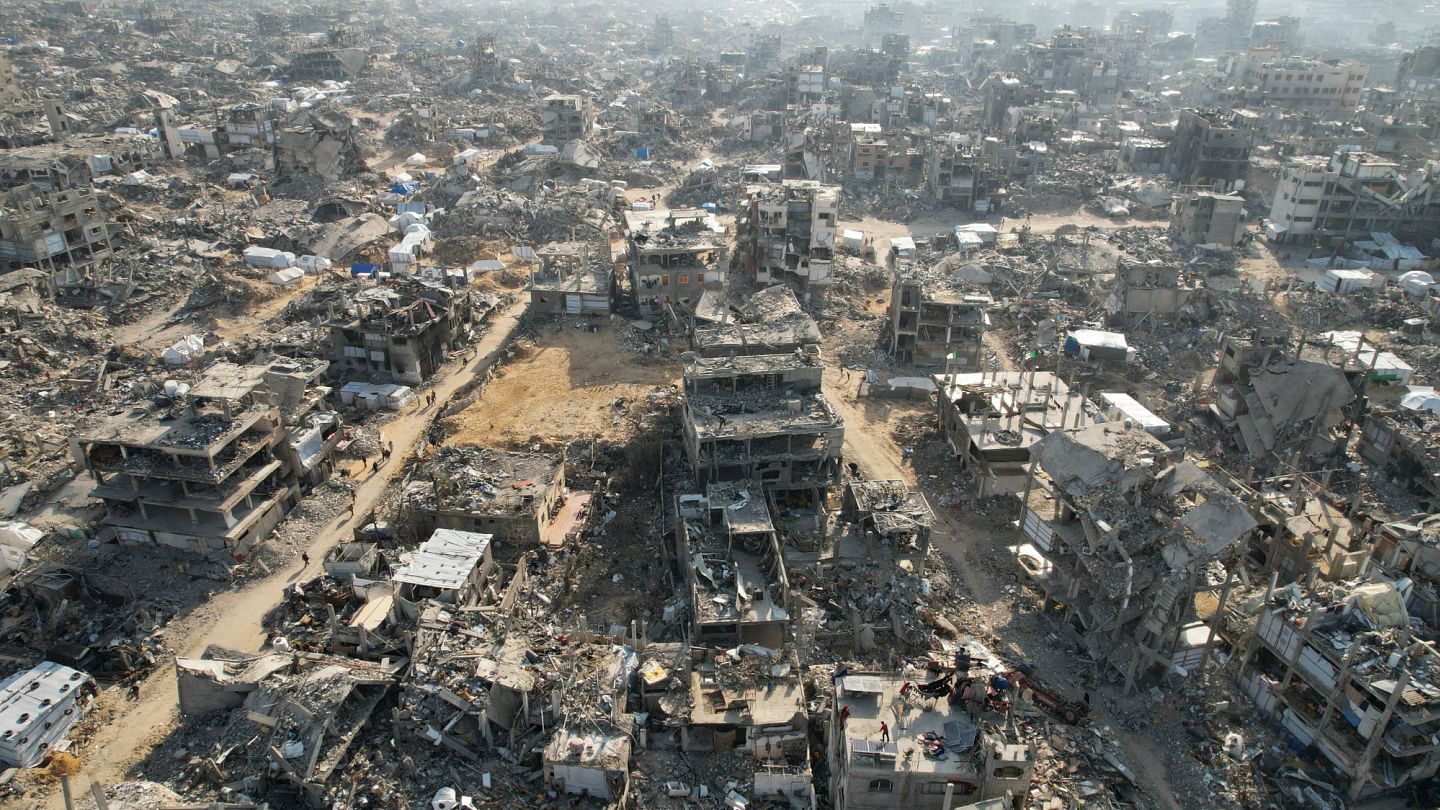Israeli military to continue Gaza operation 'with full force' in next days, Netanyahu says
Israel has previously promised to intensify its offensive, including by seizing all of Gaza and displacing much of the territory's population again.
Prime Minister Benjamin Netanyahu has said the Israeli military will resume its operations in Gaza "with full force" in the coming days."Completing the operation means defeating Hamas. It means destroying Hamas," Netanyahu said in a statement issued by his office.Netanyahu warned there was "no way" Israel would halt the war in Gaza, even if a deal is reached with Hamas to release more hostages.His comments are expected to complicate talks on a new ceasefire that had seemed to gain momentum after Hamas released the last living US hostage, Edan Alexander, on Monday in what it called a "goodwill gesture" to US President Donald Trump.In comments released by his office on Tuesday from a visit to wounded soldiers the previous day, Netanyahu said Israeli forces were just days away from a promised escalation of force and would enter Gaza "with great strength to complete the mission. It means destroying Hamas."Any ceasefire deal reached would be temporary, the prime minister said. If Hamas were to say they would release more hostages, "we'll take them and then we'll go in. But there will be no way we will stop the war," Netanyahu said.Hamas has said it will only release the remaining hostages in return for more Palestinian prisoners, a lasting ceasefire and an Israeli military withdrawal from Gaza.Israel says 58 hostages remain in captivity, with as many as 23 of them said to be alive, although authorities have expressed concern about the condition of three of them.Many of the 250 hostages taken by Hamas-led militants in the 8 October attack on southern Israel that started the war have been freed in previous ceasefire deals.Netanyahu faces criticismEdan Alexander's release on Monday created a backlash against Netanyahu, who critics accuse of putting the lives of the hostages in danger by continuing the war.Netanyahu says he is committed to returning all the hostages, destroying Hamas and resettling much of Gaza's population through what he refers to as "voluntary emigration."During a nearly two-hour meeting in Tel Aviv with the families of hostages on Tuesday, the United States' special envoy for the Middle East, Steve Witkoff, and Adam Boehler, the Trump administration's envoy for hostage affairs, said they would do what was needed to bring the remaining hostages home.Witkoff said everyone would prefer a diplomatic solution and that most hostages had been released through diplomacy. Ramping up the offensiveIsrael has previously promised to intensify its offensive, including by seizing all of Gaza and displacing much of the territory’s population again.Days before the previous ceasefire ended in March, Israel blocked all imports from entering the Palestinian enclave, deepening a humanitarian crisis and sparking warnings about the risk of famine if the blockade isn't lifted.Israel says the steps are meant to pressure Hamas to accept a ceasefire agreement on Israel's terms.The World Health Organisation said on Tuesday that according to Gaza's Health Ministry, 57 children had died from the effects of malnutrition since the blockade began on 2 March.Also on Tuesday, the Israeli military struck what it said was a Hamas "command and control centre" located beneath a hospital in the southern Gaza city of Khan Younis.The strike on the European hospital was the day's second strike on a hospital in the city.Gaza's Health Ministry said six people were killed and 40 were wounded in the strike.Earlier on Tuesday, Israel struck Nasser hospital, saying militants were operating inside it, without identifying them.Two people, including a journalist who was targeted in an earlier strike, were killed.Israel seeking to move Palestinians out of GazaNetanyahu has previously voiced support for a plan proposed by Trump for Palestinians to be moved out of the Gaza Strip after the war, an idea that infuriated Palestinians and Arab nations."We have put together an administration that will allow them to leave, but the problem with us is one thing — we need receptive countries," Netanyahu said during his visit to the wounded soldiers on Monday."That's what we’re working on right now. If you give them the go-ahead, I tell you that more than 50% will leave, and I think much more."Israel and the US have been seeking countries willing to take Palestinians who would potentially move out of the territory.The war began when Hamas militants attacked southern Israel on 7 October 2023, killing around 1,200 people, most of them civilians. Hamas took 251 people as hostages, and is currently holding 59, of whom 24 are believed to be alive. A subsequent Israeli offensive has to date killed at least 52,000 Palestinians, mostly women and children, according to the Hamas-run Gaza Health Ministry whose figures do not distinguish between fighters and civilians.The Israeli military says 850 of its soldiers have died since the start of the war.


